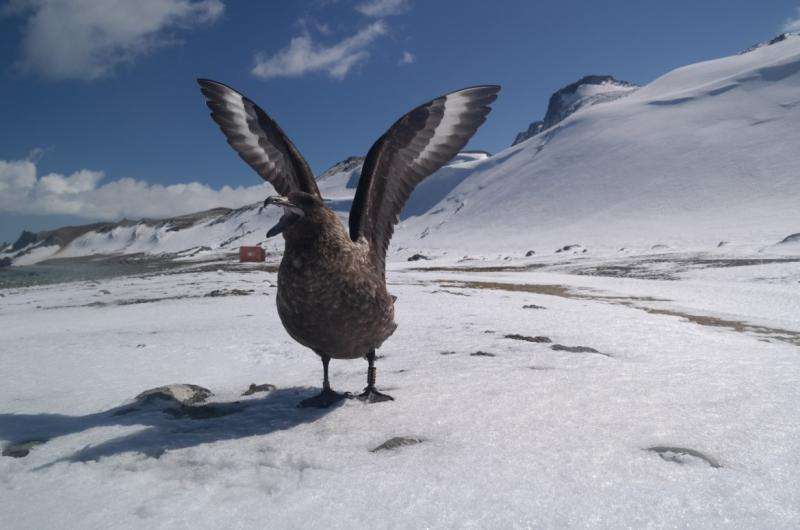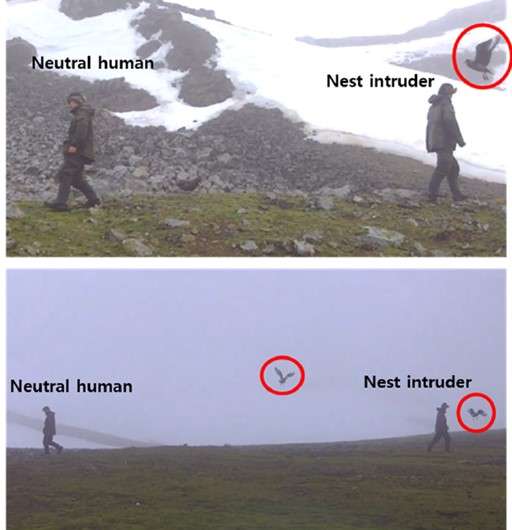Antarctic birds recognize individual humans

You may have heard of crows, magpies, and mockingbirds recognizing individual people. These birds live among people, so it may be natural that they learn to differentiate people. But what about the animals that live in remote areas?
Scientists in South Korea studied brown skuas living in Antarctica and reported that these birds too recognize people who had previously accessed the nests to measure their eggs and nestlings. "I had to defend myself against the skuas' attack," says Yeong-Deok Han, a PhD student at Inha University. "When I was with other researchers, the birds flew over me and tried to hit me. Even when I changed my field clothes, they followed me. The birds seemed to know me no matter what I wear."
The research team performed a series of experiments. The researchers checked the nests once a week to monitor the breeding status, and the skuas attacked at closer distances with repeated visits of the researchers. To test if the birds specifically distinguish the researchers who visited the nests from those who did not, a pair of humans consisting of nest intruder (who accessed the nests) and neutral human (who never accessed the nests before) approached to the nests and walked towards the opposite directions. All seven skua pairs followed and tried to attack the nest intruder but never followed the neutral human.

"It is amazing that brown skuas, which evolved and lived in human-free habitats, recognized individual humans just after 3 or 4 visits. It seems that they have very high levels of cognitive abilities." says Dr. Won Young Lee, a Senior Researcher from Korea Polar Research Institute who led the research. The cognitive abilities of Antarctic animals have not been well studied before. Brown skuas have been recorded to steal food from other birds or even steal breast milk of nursing elephant seals. According to the researchers, this opportunistic feeding habits may make them cleverer with time.
Dr. Lee commented: "Since this area has been inhabited by humans only after the Antarctic research stations were installed, we think that the skuas could acquire the discriminatory abilities during a short-term period of living near humans."
These findings are published in the journal Animal Cognition.
Check out the video to see how the birds reacted to the nest intruder in the discriminatory experiment.
More information: Won Young Lee et al. Antarctic skuas recognize individual humans, Animal Cognition (2016). DOI: 10.1007/s10071-016-0970-9
Journal information: Animal Cognition
Provided by Seoul National University

















